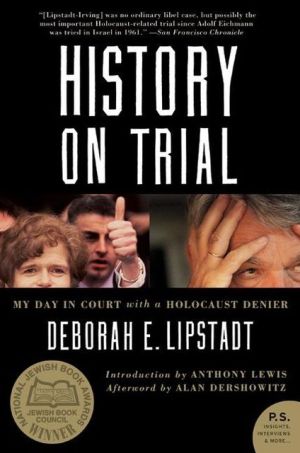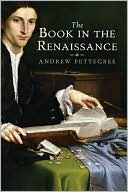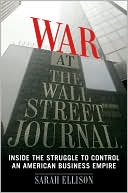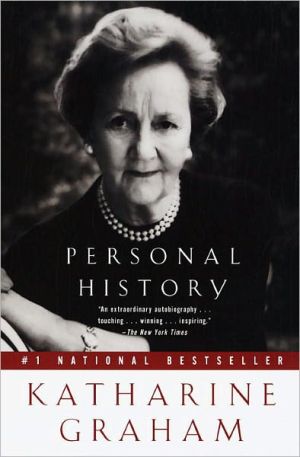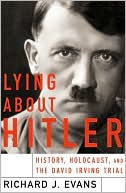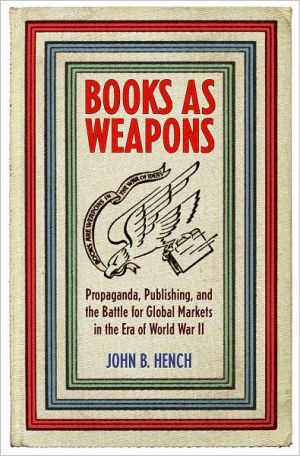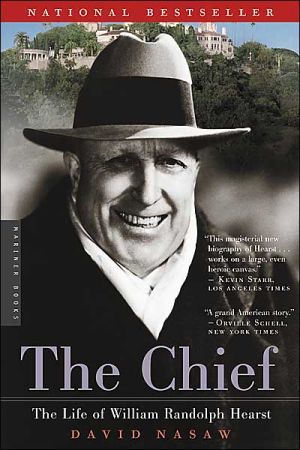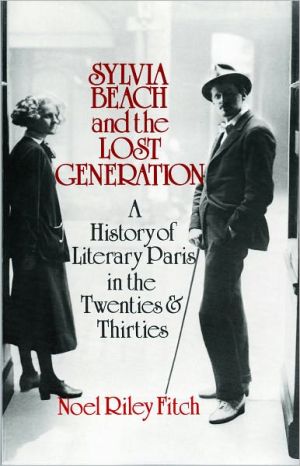History on Trial: My Day in Court with a Holocaust Denier
In her acclaimed 1993 book Denying the Holocaust, Deborah Lipstadt called putative WWII historian David Irving "one of the most dangerous spokespersons for Holocaust denial." A prolific author of books on Nazi Germany who has claimed that more people died in Ted Kennedy's car at Chappaquiddick than in the gas chambers at Auschwitz, Irving responded by filing a libel lawsuit in the United Kingdom — where the burden of proof lies on the defendant, not on the plaintiff. At stake were not only...
Search in google:
In her acclaimed 1993 book Denying the Holocaust, Deborah Lipstadt called putative WWII historian David Irving "one of the most dangerous spokespersons for Holocaust denial." A prolific author of books on Nazi Germany who has claimed that more people died in Ted Kennedy's car at Chappaquiddick than in the gas chambers at Auschwitz, Irving responded by filing a libel lawsuit in the United Kingdom — where the burden of proof lies on the defendant, not on the plaintiff. At stake were not only the reputations of two historians but the record of history itself. The Washington Post - Daniel Jonah Goldhagen Lipstadt's steadfastness, which can be seen throughout this book, stood her and historical truth well. A lesser person might have wilted under the enormous financial and media pressure. Against her nature, Lipstadt followed Julius's instruction to remain silent throughout, never speaking either in court or to the media that were not entirely fair to her. Only after the verdict did the world finally hear her voice, and only with this book do we hear it fully for the first time.
History on Trial\ My Day in Court with a Holocaust DenierChapter OneA Personal and Scholarly Odyssey\ "No, I am not a child of Holocaust survivors."\ Ever since I began teaching about the Holocaust I have been asked about my background. Some questioners seemed surprised by my response. Why else would I be interested in the topic? Others, however, felt that my personal distance from the event allowed a more scholarly perspective.\ My father left Germany before the Third Reich and my mother was born in Canada. Growing up on Manhattan's Upper West Side, I had known many "refugees." No one called them survivors. Some had emigrated in the 1930s, leaving behind a comfortable middle-class existence. Others came after the war. My father helped many of them when they arrived in New York. He attempted to bring his five sisters to the United States but could not do so. They survived in other countries and came to New York in the postwar period. As a young child, I remember sensing that these Central European Jewish homes, with their heavy, dark furniture and steaming cups of tea accompanied by delicate homemade strudel and other distinctly European pastries, were different from those of my American schoolmates.\ My parents' Modern Orthodox home was shaped by a dedication to Jewish tradition together with an appreciation for the surrounding secular society. One was as likely to find on our living room table a book on Jewish lore as a book on Rembrandt. My brother, sister, and I all attended Jewish schools. When I was in first grade, my parents decided to move from Manhattan to the suburbs. They chose Far Rockaway, a beachside community in Queens, becausethey admired the local rabbi, Emanuel Rackman, and decided that this was the man they wanted as a spiritual leader and a role model for their children. A graduate of Columbia Law School, he combined knowledge of Judaism with the contemporary world. His well-crafted muscular sermons, delivered without notes, covered a wide range of topics — everything from the weekly Torah portion to Arnold Toynbee. Shortly after the fall of Stalin, during a period of Khrushchev-style perestroika, he traveled with a group of American rabbis to the Soviet Union. On the Shabbat of his return my father suggested that I stay in the synagogue during the sermon — a time that we children generally ran all over the expansive lawn in front of the building. "It will be memorable," he assured me. Though I was not quite sure what "memorable" meant, I knew the trip had been something important. I did not grasp all that Rabbi Rackman said, but I understood that he had made contact with a group of Jews who were not free to live as we did, and he said that we could not forget them.\ A believer in intra- and interreligious dialogue, long before it was in vogue, Rackman reached out to people both within the Jewish community and outside of it. Right-wing religious Jews attacked him for his attempts to demonstrate how one could — and should — draw upon the best in both traditional Judaism and the secular world. I remember how my father would seethe at these attacks and stress how important it was for Rabbi Rackman's ideas not to be silenced. Long before I knew precisely what a role model was, I knew that I wanted to be like him.\ Though synagogue attendance and observance of Jewish rituals set the rhythm of our home, we were very much part of the broader world. In addition to ensuring that my siblings and I received an intensive Jewish education, my parents exposed us to theater, museums, art, and politics. Even after we had moved to the suburbs my mother would often take us into Manhattan on Sundays to see exhibits, attend the special youth symphonies at New York's Ninety-second Street YMHA, watch parades, climb the rocks in Central Park, and even tour visiting aircraft carriers. My parents encouraged a degree of independence in us. When I was twelve and wanted to go into the city to see a movie at Radio City Music Hall or visit a museum, they encouraged it. The problem was finding a classmate whose parents did not think it a totally reckless excursion. I usually managed to find an intrepid soul. I soon learned to navigate my way through the city.\ By middle school I had gained a reputation, particularly with my teachers at the Jewish day school I attended, as a feisty and combative student. When teachers did something that I did not consider fair, I would challenge them — often not very diplomatically. Invariably, my mother would appear in the principal's office to defend my actions and plead my case. I had the impression that, although she did not appreciate these school visits, she admired my gumption. I knew that I had been named Deborah because she loved the biblical character. When I was still quite young she had described how Deborah led her people in battle and dispensed justice. I liked the notion that I was named after such a person. When my mother admonished me for getting in trouble, I told her I was just emulating Deborah.\ My mother was a free spirit. It was not unusual for her to announce: "There's a wonderful Van Gogh exhibit at the Guggenheim. Ditch school. Let's go." And I did. Despite — or possibly because — neither my father nor mother had been able to attend college, they became intense autodidacts, continually attending classes and lectures. I remember spirited discussions around our Shabbat table about Rachel Carson's Silent Spring, J. D. Salinger's Franny and Zooey, Philip Roth's Goodbye, Columbus, civil rights, the 1968 New York City teachers' strike, and the war in Vietnam, which we uniformly opposed. My mother and I marched in Harlem in solidarity with the Birmingham-Salem civil rights protestors ...\ History on Trial\ My Day in Court with a Holocaust Denier. Copyright (c) by Deborah Lipstadt . Reprinted by permission of HarperCollins Publishers, Inc. All rights reserved. Available now wherever books are sold.
IntroductionxiNote to the ReaderxvPrologue: The LetterxviiThe Prelude1A Personal and Scholarly Odyssey32The Defense Strategy273Auschwitz: A Forensic Tour514Our Objective Changes67The Trial5"All Rise!"776Irving in the Box: Not a Denier but a Victim877The Chain of Documents998The Holocaust: Random Killings or Systematic Genocide?1099Queues and Gas Chamber Controversies12710An American Professor15111Exonerating Hitler, Excoriating the Allies16112Fighting Words17313Revolting Calculations18514Lying about Hitler19915The Diary of Anne Frank: A Novel?21116Our German Contingent22317Cavorting with Thugs or Guilt by Association?23318One-Person Gas Chambers and White People's Polkas24319The Final Scene255The Aftermath20Judgment Day: Phone Chains, Psalms, and Sleepless Survivors26721Enormous Thanks28522The "Jester's Costume"291Afterword303Acknowledgments307Notes311Index329
\ Daniel Jonah Goldhagen"A well-paced, expertly detailed and fascinating account of the trial process."\ \ \ \ \ San Francisco Chronicle"History on Trial is not the first book about the case....But Lipstadt’s story is more personal, compelling and intriguing."\ \ \ Jewish Week"A compelling book, History on Trial is memoir and courtroom drama, a work of historical and legal import. "\ \ \ \ \ Washington Times"Immensely readable…. History on Trial restores one’s faith in the power of good scholarship."\ \ \ \ \ San Jose Mercury News"Fascinating.... [Lipstadt] takes us into the moment and produces a courtroom drama as enthralling as any fictional one."\ \ \ \ \ Atlanta Journal-Constitution"Deborah Lipstadt is writing for us. And for the ages."\ \ \ \ \ Salon.com"Lipstadt gives a detailed account of the trial that never loses its suspense, readability or momentum. Or humor."\ \ \ \ \ Baltimore Sun"Resonant."\ \ \ \ \ Newsweek International“Compelling…. Lipstadt’s vigorous account is a window into a Jewish community still grappling with the loss of 6 million souls.”\ \ \ \ \ Newsweek (International Edition)"Compelling…. Lipstadt’s vigorous account is a window into a Jewish community still grappling with the loss of 6 million souls."\ \ \ \ \ San Jose Mercury News“Fascinating.... [Lipstadt] takes us into the moment and produces a courtroom drama as enthralling as any fictional one.”\ \ \ \ \ Atlanta Journal-Constitution“Deborah Lipstadt is writing for us. And for the ages.”\ \ \ \ \ San Francisco Chronicle“History on Trial is not the first book about the case....But Lipstadt’s story is more personal, compelling and intriguing.”\ \ \ \ \ Washington Times“Immensely readable…. History on Trial restores one’s faith in the power of good scholarship.”\ \ \ \ \ Baltimore Sun“Resonant.”\ \ \ \ \ Jewish Week“A compelling book, History on Trial is memoir and courtroom drama, a work of historical and legal import. ”\ \ \ \ \ Salon.com“Lipstadt gives a detailed account of the trial that never loses its suspense, readability or momentum. Or humor.”\ \ \ \ \ Daniel Jonah GoldhagenLipstadt's steadfastness, which can be seen throughout this book, stood her and historical truth well. A lesser person might have wilted under the enormous financial and media pressure. Against her nature, Lipstadt followed Julius's instruction to remain silent throughout, never speaking either in court or to the media that were not entirely fair to her. Only after the verdict did the world finally hear her voice, and only with this book do we hear it fully for the first time.\ — The Washington Post\ \ \ \ \ Publishers WeeklyIn a much-publicized case, David Irving, the author of numerous books about WWII, sued Emory University historian Lipstadt and her British publisher, Penguin, for libel. Lipstadt had called Irving a Holocaust denier in a book about the Holocaust denial movement, and Britain's libel laws put the burden of proof on her to show that the charge was true. Did that mean proving the Holocaust had happened? Was Lipstadt, as Irving claimed, trying to restrict his freedom of speech, or was he restraining hers? Was the courtroom the proper place to examine historical truth? The press hotly debated these issues, but as Lipstadt relates in this powerful account, she and her adept lawyers felt they simply had to discredit a man who had said that "no documents whatsoever show that a Holocaust had ever happened." In 2000, Judge Charles Gray decided in Lipstadt's favor, finding it "incontrovertible" that Irving was a Holocaust denier. The drama of the book lies in the courtroom confrontations between an evasive and self-contradictory Irving (serving as his own lawyer) and Lipstadt's strategically brilliant barrister, Richard Rampton, and the scholars who testified in her defense. Lipstadt herself is a reluctant heroine, a feisty, outspoken woman forced to remain silent (she did not testify in court) and let her lawyers speak for her. No one who cares about historical truth, freedom of speech or the Holocaust will avoid a sense of triumph from Gray's decision-or a sense of dismay that British libel laws allowed such intimidation by Irving of a historian and a publisher in the first place. Agent, Gary Morris. (Feb. 4) Copyright 2005 Reed Business Information.\ \ \ \ \ Library JournalOn her lawyer's instructions, Lipstadt (Judaic studies, Emory Univ.) did not publicly defend herself when Holocaust denier David Irving sued her for libel. Now Lipstadt breaks her silence, revealing her personal experiences while reflecting on the trial's relationship to questions of academic freedom and historical veracity. In recounting how she became interested in Holocaust studies and how the trial disrupted her life, Lipstadt effectively blends her story with the wider political worlds of academic publishing and politics. Although readers know that she was completely vindicated, Lipstadt manages to convey the tensions of the trial. She also gives a touching account of the outpouring of support she received from many quarters, not all of them Jewish. Although excessive detail sometimes slows the narrative, the book provides significant insight into how Holocaust deniers ply their trade. Three other books have been published so far on the Irving-Lipstadt trial (Richard Evans's Lying About Hitler, Robert Jan van Pelt's The Case for Auschwitz, and D.D. Gutenplan's History on Trial) and belong with this insider's account in all libraries.-Frederic Krome, Jacob Rader Marcus Ctr. of the American Jewish Archives, Cincinnati Copyright 2005 Reed Business Information.\ \ \ \ \ School Library JournalAdult/High School-In Denying the Holocaust (Penguin, 1994), Lipstadt called Irving, an English author of books on World War II and the Third Reich, the most dangerous Holocaust denier because his works were reviewed in mainstream journals and he commanded a certain level of respect and influence in the field. Irving later sued her and her publisher, Penguin UK, for libel. Under English law, the burden of proof in a libel case rests with the defendant. The core of the book is the trial itself, combining a page-turning eyewitness account and a close look at the mind-set and dubious research methods of a neo-Nazi. Irving served as his own lawyer and constantly courted press coverage. Among his assertions: Hitler did not order the Kristallnacht violence but attempted to stop it; the Allies were responsible for typhus epidemics in the concentration camps; Anne Frank's diary is a romantic novel; more people died in Ted Kennedy's car at Chappaquidick than in the gas chambers at Auschwitz. Ultimately, Irving's case collapsed under the weight of evidence and expert testimony provided by the defense. In addition to possible use with the curriculum, this book will appeal to teens interested in modern history, historiography, and law.-Sandy Freund, Richard Byrd Library, Fairfax County, VA Copyright 2005 Reed Business Information.\ \ \ \ \ Kirkus ReviewsAbsorbing account of the famed libel trial, in London, that brought the whole enterprise of Holocaust denial to the bench. In Denying the Holocaust (1993), Lipstadt (History/Emory Univ.) described British historian David Irving as "a Hitler partisan wearing blinkers," a man who "on some level seems to conceive himself as carrying on Hitler's legacy." Dangerous words, particularly since Irving had written books on the history of the Third Reich that had been well received; the eminent military historian John Keegan, for instance, praised Irving's Hitler's War as one of the best books ever written about WWII. Irving, who had earned enough money from the sales of his books to own a Rolls-Royce and keep a place in London's fashionable Mayfair district, was quick to sue. It took six years for the case to come to trial, but when it did, Lipstadt and her legal team were stunningly well prepared; among other documents, they had a 700-page dossier prepared by historian Richard J. Evans examining the sources Irving claims to have used in making his years-long argument that Hitler was innocent of having ordered the extermination of European Jews. Lipstadt's reconstruction of the trial as it played out day by day has its dry patches, but her account rises above the case itself to indict the demimonde of Holocaust deniers generally. Into the bargain, Lipstadt convincingly characterizes Irving as a litigious anti-Semite with a penchant for bending historical facts to suit repellent theories, as the court concluded. By the end, following a couple of cliffhanger moments, readers will sense that justice has been done, though plenty of puzzling aspects remain: Irving continues to speak and publish, and, inthe wake of the court's judgment, prominent historians, including Keegan, rose to his defense. This last word in the matter of DJC Irving v. Penguin Books Ltd and Deborah Lipstadt is a fascinating and meritorious work of legal-and moral-history. Agent: Gary Morris/David Black Agency\ \
